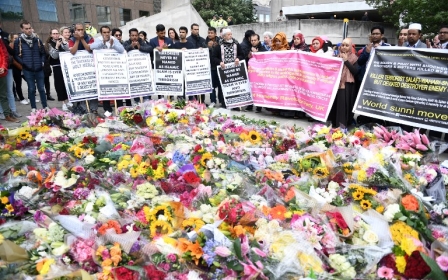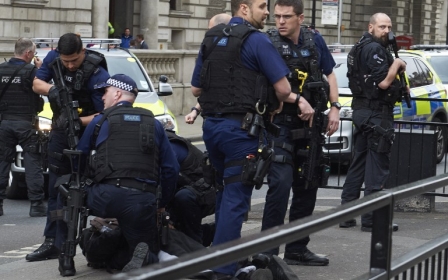Islamic State agent tried to recruit undercover BBC reporter

Members of the Islamic State (IS) group in Syria tried to encourage an undercover BBC journalist to target London Bridge, a year before eight people were killed in an IS-inspired attack on the area.
IS recruiters used encrypted message service, including WhatsApp, Telegram and Surespot, to encourage terrorist attacks on London Bridge and Westminster and gave instructions for for the journalist to attack it alone or in a group.
A BBC investigation, due to be broadcast on Monday night, could increase pressure on the technology firms who operate the apps to work with security services to disrupt terrorist plots, UK media reported.
IS agents also shared part of a “terrorist tutorial” on the so-called dark web with the journalist. The tutorial included descriptions of attacks with alarming similarities to the London Bridge attack, which saw all three attackers shot dead by police after killing eight people, including instructions on how to make fake suicide vests.
As part of the BBC investigation, the undercover journalist used Twitter to make his initial contact with IS through Birmingham-born extremist and IS recruiter Junaid Hussain. Hussain was killed in Syria in 2015, and the journalist continued contacts with other IS figures for two years.
“We began conversing with one of their recruiters, who then invited us to chat privately on a secret messaging site,” said one of the undercover reporters. “The authorities were fully aware of our contact.”
In one exchange the recruiter wrote: “London Bridge – what you say about that? . . . truck, axe, anything can work.”
Another recruiter had recommended attacking Westminster, writing: “If you succeed . . . it will be huge and damaging for them.” The agent directed the journalist to a terrorist manual on the dark web which advised how a militant could use a vehicle as a weapon.
Ben Wallace, the security minister, confirmed that encrypted communications and online videos were used by planners and recruiters who carried out this year’s terror attacks. “There was definitely usage of encrypted communications between planners and terrorists and people that carried out some of those dreadful attacks,” he told the BBC. “That, I am afraid, is common throughout nearly every single one of these incidents and there is also a role of watching videos online to either prepare themselves or train themselves.”
Wallace added that the encrypted messaging services had to ask themselves “big moral questions”.
New MEE newsletter: Jerusalem Dispatch
Sign up to get the latest insights and analysis on Israel-Palestine, alongside Turkey Unpacked and other MEE newsletters
Middle East Eye delivers independent and unrivalled coverage and analysis of the Middle East, North Africa and beyond. To learn more about republishing this content and the associated fees, please fill out this form. More about MEE can be found here.




